Overview
The secrets of a skinny person revolve around habits such as mindful eating, regular physical activity, balanced nutrition, adequate hydration, and sufficient sleep, all of which contribute to maintaining a healthy weight. The article supports this by detailing how these practices not only promote a healthier lifestyle but also highlight the importance of psychological and social influences, demonstrating that adopting such habits can lead to improved well-being and weight management.
Introduction
In a world where health and wellness are paramount, understanding the habits and influences that shape our eating behaviors can be transformative. The journey to effective weight management is not just about the food on our plates; it encompasses a rich tapestry of:
- Genetics
- Psychology
- Social dynamics
- Physical activity
By exploring the core habits of naturally slim individuals, the genetic factors that influence body composition, and the psychological and social influences on eating, individuals can gain valuable insights into their own health journeys. This article delves into actionable strategies that HR Benefits Managers can implement to foster a culture of well-being within their organizations, ultimately empowering teams to embrace healthier lifestyles and achieve sustainable health outcomes.
The time to prioritize wellness is now—let's unlock the potential for a healthier future together.
Core Habits of Naturally Slim Individuals
Individuals who naturally maintain a slim physique often embody the secrets of a skinny person that can inspire us all to enhance our health and well-being. These habits include:
- Mindful Eating: They practice the art of listening to their bodies, consuming food when hungry, and stopping when satisfied. This conscious approach not only prevents overeating but also fosters a healthier relationship with food. At Foresight Health Coaching, we provide workshops that explore mindful consumption techniques, enabling participants to enhance their nutritional patterns and overall wellness. As Kelly Brownell, a prominent advocate for mindful consumption, states, "this practice can significantly improve dietary habits and overall health." Furthermore, a recent study revealed that among women, a higher Emotional Response factor score (β = -0.85) was associated with lower PDQS-30D scores, highlighting the emotional aspects of mindful eating and its impact on diet quality.
- Regular Physical Activity: Slim people seamlessly integrate physical activity into their daily lives, whether through structured workouts or simply staying active with walking, cycling, or participating in sports. Our extensive health coaching services highlight regular physical activity as a fundamental aspect of effective body management, providing customized fitness coaching to address personal needs.
- Balanced Nutrition: Their diets emphasize whole foods, abundant in fruits, vegetables, lean proteins, and whole grains. They remain mindful of portion sizes and steer clear of excessive processed foods, ensuring that every meal supports their health goals. Our nutritional advice is crafted to assist people in comprehending and adopting balanced eating practices.
- Hydration: Acknowledging the essential role of hydration, they prioritize water consumption, recognizing its significance in managing body composition. Drinking water before meals is a simple yet effective strategy to help control appetite, paving the way for healthier choices. Our coaching programs address hydration as part of a holistic approach to wellness.
- Adequate Sleep: Quality sleep is non-negotiable for those who are naturally slim. They understand that sufficient rest is vital for metabolism and overall well-being, making it a priority in their routines. We also emphasize the importance of sleep in our coaching sessions, providing clients with strategies to improve their sleep quality.
By adopting these habits and participating in Foresight Health Coaching's wellness programs, individuals can discover the secrets of a skinny person, cultivating a supportive environment that fosters a healthy weight and enhances overall health. Our corporate memberships, designed for companies with up to 30 employees, include in-person wellness talks, comprehensive pantry and nutrition services, and access to our health and wellness app. This allows organizations to support their employees' health journeys effectively.
Recent studies indicate that incorporating mindful consumption practices can positively influence diet quality, particularly among low-income adults, as evidenced by a cross-sectional study titled "Mindful Consumption and Diet Quality in Low-Income Adults." This research found that higher mindful eating scores among men were associated with better diet quality, underscoring the importance of these strategies in promoting well-being across diverse populations.
To learn more about our tailored wellness programs and how they can benefit your organization, contact us today and unlock your potential for a healthier future!
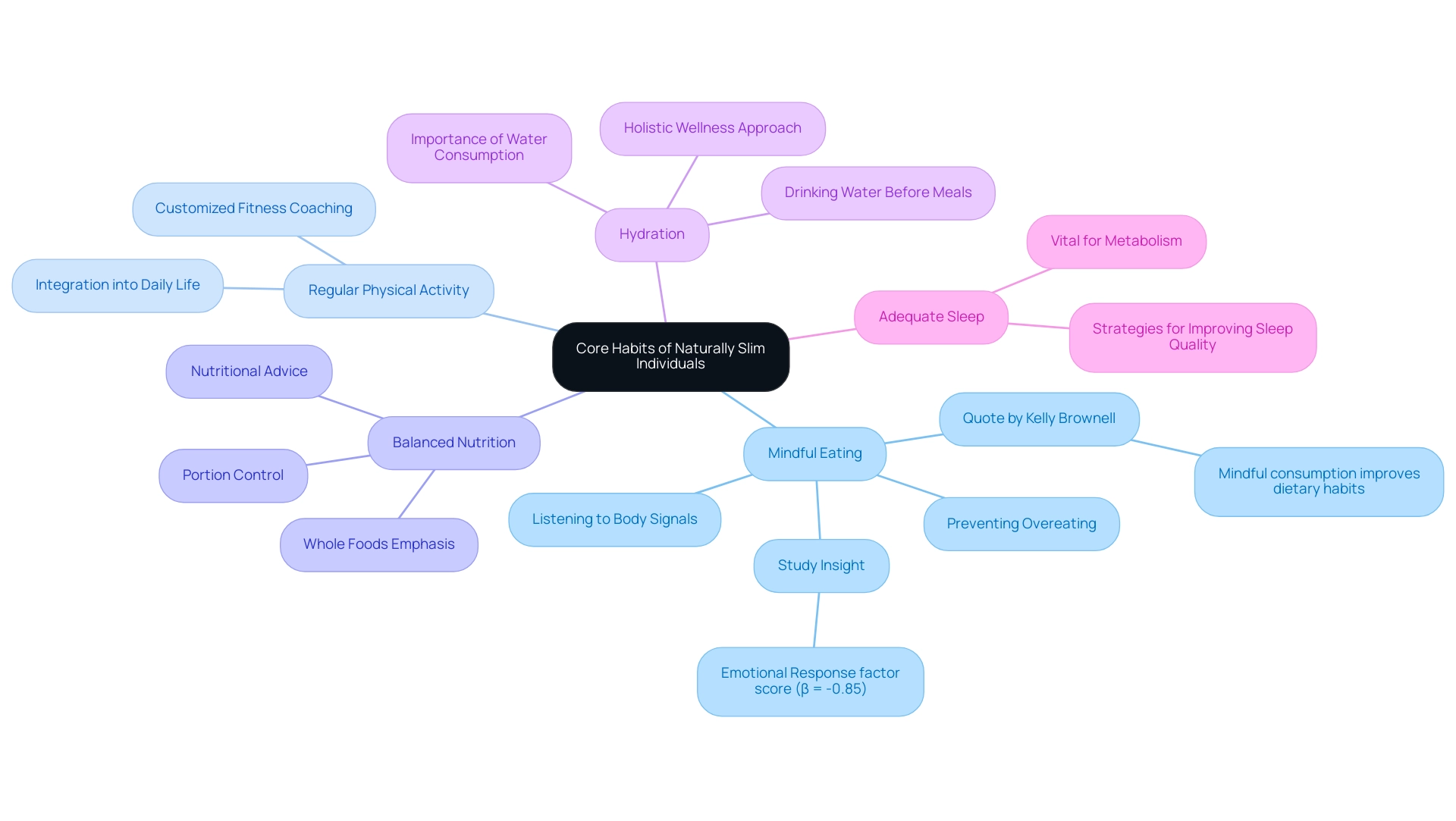
The Influence of Genetics on Weight Management
Genetics undeniably shapes our body weight and composition, often referred to in popular terms as having 'skinny genes.' Recent research underscores that our genetic makeup significantly influences crucial aspects such as metabolism, appetite regulation, and fat distribution. Here are some vital points to consider:
- Metabolic Rate: Certain people possess a naturally higher metabolic rate, enabling them to burn calories more efficiently. This phenomenon is linked to genetic variations that affect energy expenditure, making understanding one's metabolic profile crucial.
- Appetite Regulation: Genetic factors play a pivotal role in influencing hormones responsible for hunger and satiety. This means that some people may feel compelled to eat more or less based on their genetic predisposition, affecting their overall food intake.
- Fat Distribution: Our genetic code also determines where fat is stored in the body, influencing overall body shape and complicating management efforts. For instance, research indicates that moderate-intensity sports of 1 and 2 hour durations accounted for within-pair differences of 1.0 kg and 1.4 kg, respectively, in total body fat among twins, highlighting the impact of genetics on body composition.
- Response to Diet and Exercise: Genetic predispositions can determine how effectively people respond to specific diets and exercise regimens. This underscores the importance of personalized health approaches tailored to one’s genetic profile.
- Dietary Influence: High-fat diets have been associated with increased energy intake and obesity, as shown in the case study titled 'Dietary Fat and Obesity.' This research indicates that dietary composition, especially fat consumption, has a crucial impact on the progression of obesity, further demonstrating the interaction between genetics and body management.
- Racial and Ethnic Differences: It's important to note that racial and ethnic differences exist in obesity prevalence and body composition, influenced by physiological and behavioral factors. Comprehending these differences offers a wider viewpoint on the genetic factors involved in managing body composition.
Grasping these genetic influences enables individuals to implement strategies that align with the secrets of a skinny person and their distinct biological characteristics. This knowledge can lead to more effective management of body composition and healthier lifestyles, fostering a proactive approach to well-being. As Gabriel Chodick, PhD, highlights,
The links established between parental and offspring obesity, particularly during late adolescence, provide insights for understanding the early origins of obesity.
This insight serves as a reminder that by recognizing these genetic factors, we can better support ourselves and others in achieving sustainable health outcomes.
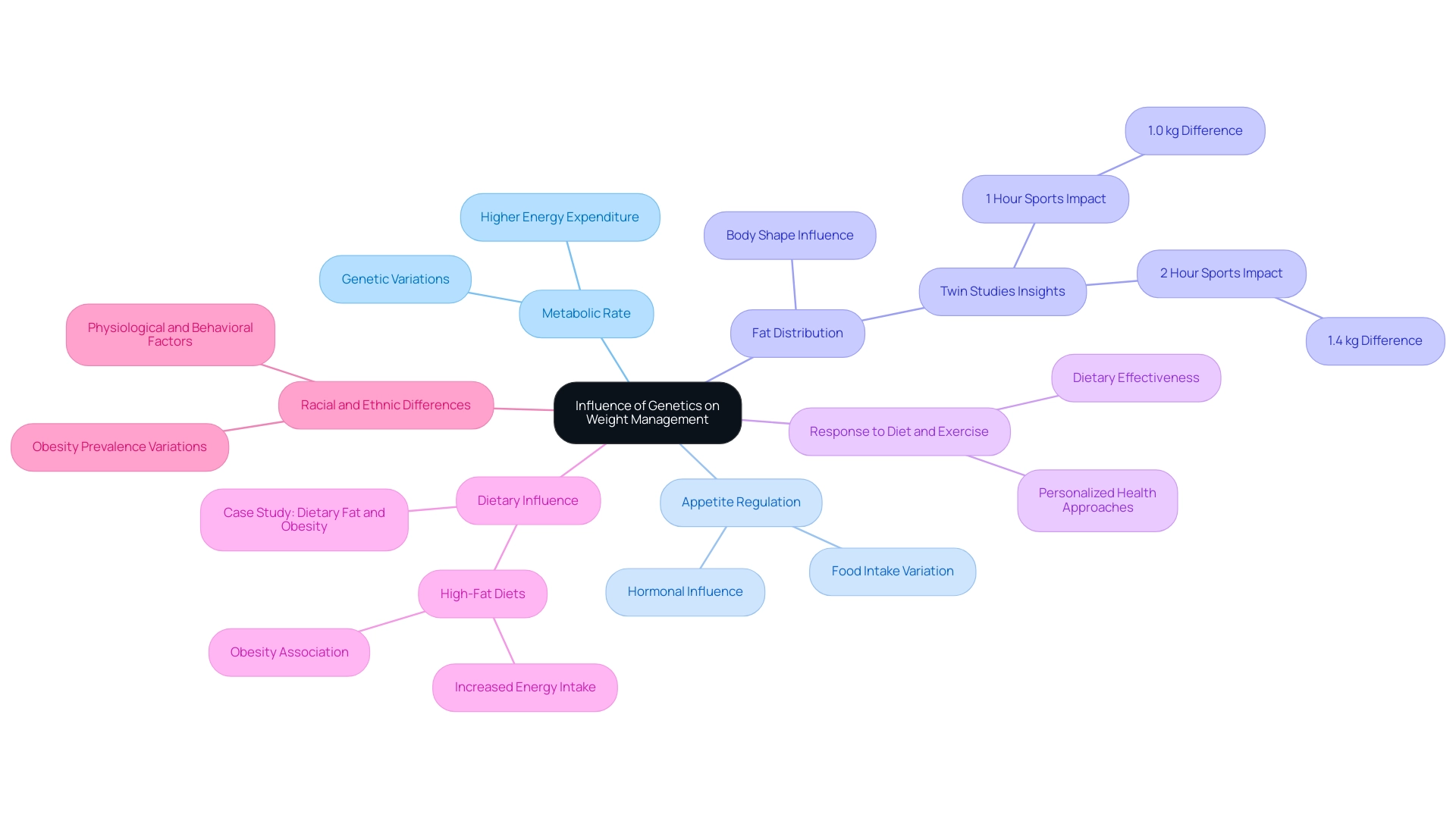
Psychological Factors Influencing Eating Habits
The psychological aspects of consumption are pivotal in the journey toward effective weight management. Stress, emotional consumption, and body image play crucial roles in influencing food selections and dietary patterns:
- Stress and Emotional Eating: During challenging times, many individuals gravitate toward food for comfort. Research indicates that emotional dysregulation is directly linked to increased emotional consumption, particularly among those facing severe obesity. A large-scale survey during the COVID-19 lockdown revealed that psychological distress significantly correlated with emotional consumption, leading to greater intake of high-sugar foods. Recognizing these patterns is essential in helping individuals discover healthier coping mechanisms, such as physical activity or engaging in hobbies that foster relaxation. However, further research is needed to explore the intricate relationship between stress and emotional consumption, as understanding this connection could inform more effective interventions.
- Body Image: The connection between body image and dietary habits is profound. Individuals with a positive body image tend to adopt healthier dietary behaviors, while those with negative self-perceptions may resort to unhealthy dieting practices. As pointed out by Hatice Kübra Barcın-Güzeldere, research indicates that people with elevated BMI are more prone to emotional consumption. By fostering self-acceptance and promoting body positivity, HR managers can facilitate healthier behaviors within their teams.
- Mindfulness Practices: Incorporating mindfulness methods into daily routines can enable people to improve their awareness of dietary habits and emotional triggers. This heightened awareness often leads to more intentional food choices and better overall health outcomes. By practicing mindfulness, individuals can better manage stress and emotional responses, further mitigating the risks of emotional consumption, as supported by the statistics on emotional dysregulation.
By addressing these psychological factors, HR Benefits Managers can play a transformative role in cultivating a healthier mindset towards food and body image, ultimately supporting their teams in achieving weight management goals. Additionally, the insights gained from the COVID-19 case study highlight the urgent need for strategies that address emotional consumption, especially during times of widespread psychological distress.
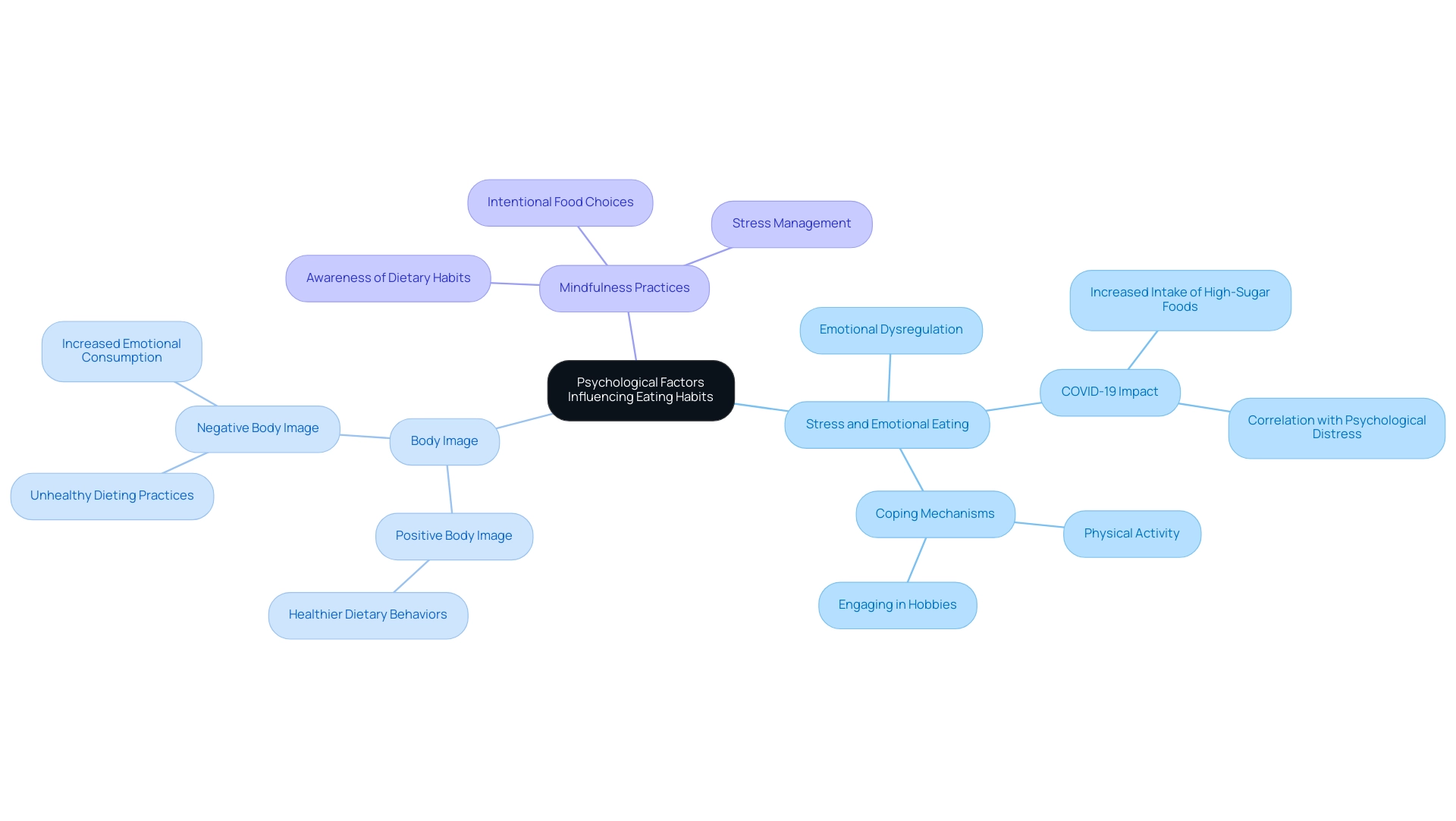
Social Influences on Eating Behavior
Social influences are crucial in shaping dietary behaviors, where factors such as peer pressure, family practices, and workplace culture converge to impact food choices significantly. Understanding these dynamics is crucial for fostering healthier lifestyles, and Foresight Health Coaching provides the tools necessary to facilitate this transformation:
-
Peer Influence: The people we surround ourselves with can heavily sway our dietary decisions.
People frequently reflect the dietary practices of their friends and coworkers. Cultivating relationships with health-conscious peers can reveal the secrets of a skinny person, inspiring positive choices and creating a ripple effect of wellness within social circles. Foresight’s tailored corporate wellness programs enhance this aspect by fostering team bonds that prioritize healthy lifestyles through group challenges and shared goals.
-
Family Habits: The traditions and dietary practices established within families lay the groundwork for dietary preferences.
By advocating nutritious cooking and participating in family meals, families can discover the secrets of a skinny person and foster lifelong practices that enhance well-being from an early age. Foresight supports this through educational resources and workshops that empower employees to make informed dietary choices that they can share with their families.
-
Workplace Environment: The workplace is a critical space influencing dietary behaviors.
Providing nutritious food choices and encouraging regular meal breaks can unveil the secrets of a skinny person while promoting a culture of wellness. Foresight Health Coaching assists organizations in transforming their work environments by incorporating health-focused initiatives, such as on-site nutrition seminars and wellness challenges, that not only enhance dietary practices but also boost overall employee productivity and cognitive performance.
By investing in corporate wellness programs, HR Benefits Managers can create a supportive network that encourages healthier eating habits and contributes to the well-being of their teams.
Moreover, implementing these programs can lead to measurable outcomes, including reduced absenteeism and lower healthcare costs, reinforcing the financial benefits of investing in employee wellness. Embracing this holistic approach, Foresight empowers organizations to unlock the potential of a vibrant, focused, and high-performing workforce, ultimately fostering a healthier workplace culture.
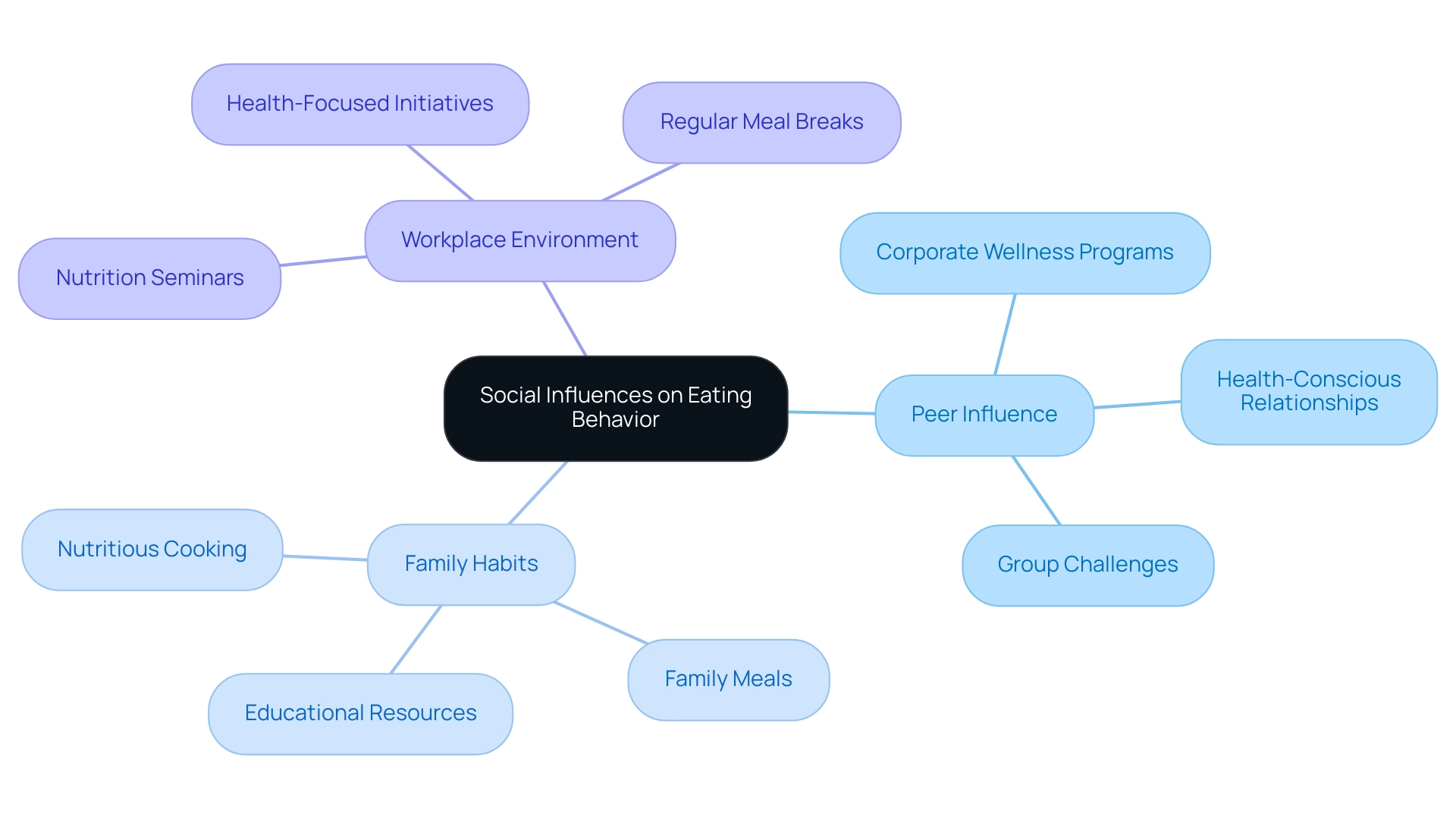
The Importance of Physical Activity in Weight Management
Physical activity is a crucial pillar of effective body management, significantly enhancing overall health and well-being. By incorporating our comprehensive wellness coaching app, you can empower your team with the tools they need to succeed, all conveniently available in one place. Consider these critical aspects:
-
Caloric Expenditure: Regular exercise plays a vital role in burning calories, establishing a caloric deficit necessary for loss or maintenance. With the app's daily programming feature, users can easily access personalized workouts tailored to their energy expenditure needs. A recent case study on a 36-year-old male highlighted how to calculate resting metabolic rate (RMR) at 1540 kcal/d and total daily energy expenditure (TDEE), demonstrating the caloric needs associated with various activity levels and the potential for weight loss through a caloric deficit.
-
Muscle Mass Maintenance: Engaging in physical activity is crucial for preserving lean muscle mass, which sustains metabolic rate. Strength training programs offered in the app ensure that individuals maintain a robust metabolism as they pursue their fitness goals, supported by video demonstrations for better understanding.
-
Mental Health Benefits: Exercise has been proven to enhance mood and alleviate stress, making it a powerful tool in combating emotional eating.
As Pete McCall, an ACE Certified Personal Trainer, notes,
Having a better understanding of how to measure energy expenditure, along with knowing the different components of how the body uses the energy you consume through your diet, can help you determine the best activities, both exercise and non-exercise, to help you reach your personal fitness goals.
The app fosters community engagement, allowing users to connect with coaches and peers for motivation, making it easier to find enjoyable physical activities.
-
Nutrition Guidance: Our app also offers personalized nutrition guidance, ensuring users have a comprehensive approach to their health goals. This integration of fitness and nutrition supports balanced lifestyle changes that are sustainable.
-
Sustainable Habits: Incorporating physical activity into everyday routines, such as walking or biking to work, fosters sustainable habits that support long-term health management. The research on metabolic adaptation to physical activity suggests that people can adjust their energy expenditure in response to increased activity, highlighting the importance of consistency in exercise.
Notably, the overall risk of bias was low in 31% of studies, with some concerns in 50% and high risk in 18%, emphasizing the need for careful interpretation of research findings. By prioritizing physical activity and nutrition with the help of our wellness coaching app, individuals can learn the secrets of a skinny person to significantly enhance their weight management efforts while simultaneously improving their overall quality of life. This multifaceted approach not only supports physical health but also contributes to mental well-being, reinforcing the importance of an active lifestyle and empowering your team to thrive. Sign Up Today to start your journey towards better health!
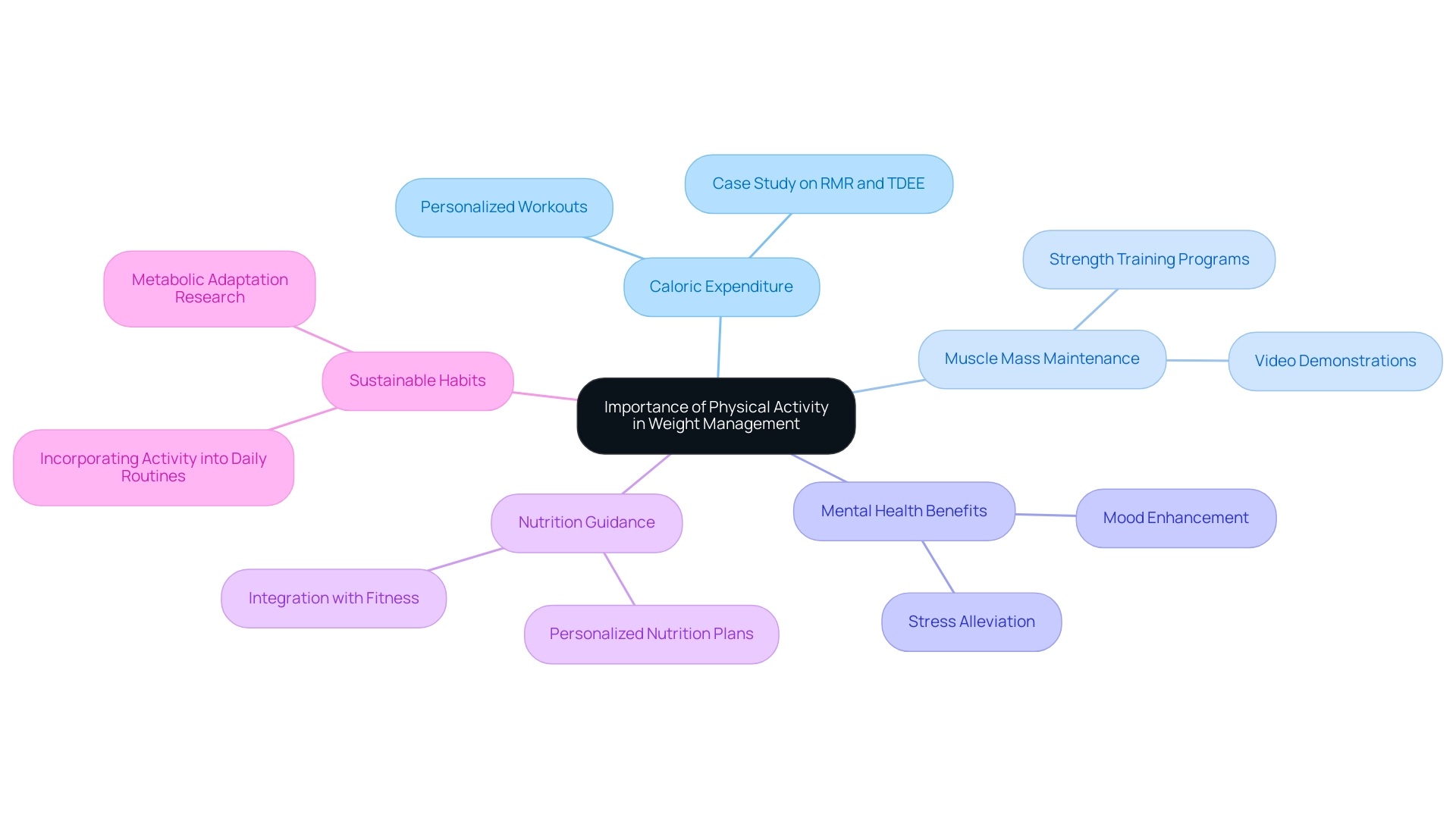
Conclusion
Embracing a holistic approach to wellness is essential for fostering a culture of health within organizations. By understanding and implementing the core habits of naturally slim individuals—mindful eating, regular physical activity, balanced nutrition, adequate hydration, and sufficient sleep—HR Benefits Managers can inspire employees to adopt healthier lifestyles. These habits nurture not only physical well-being but also emotional resilience, creating a supportive environment conducive to sustainable health outcomes.
Moreover, recognizing the influence of genetics, psychological factors, and social dynamics empowers individuals to tailor their health strategies. By addressing these elements, organizations can facilitate a transformative experience that not only improves employee well-being but also enhances overall productivity and morale. The integration of personalized wellness programs and supportive workplace environments can lead to measurable benefits, including reduced healthcare costs and increased employee satisfaction.
The journey towards effective weight management and overall wellness is a collective effort that requires commitment and action. Now is the time for HR Benefits Managers to prioritize the health of their teams, unlocking the potential for a healthier, more vibrant workforce. By championing these strategies, organizations can pave the way for a brighter, healthier future for all.
Frequently Asked Questions
What are some key habits of individuals who maintain a slim physique?
Key habits include mindful eating, regular physical activity, balanced nutrition, hydration, and adequate sleep.
How does mindful eating contribute to a healthier lifestyle?
Mindful eating involves listening to one's body, eating when hungry, and stopping when satisfied, which helps prevent overeating and fosters a healthier relationship with food.
What role does regular physical activity play in maintaining a slim physique?
Regular physical activity is seamlessly integrated into daily life, whether through structured workouts or activities like walking and cycling, and is fundamental for effective body management.
What does a balanced nutrition plan typically include?
A balanced nutrition plan emphasizes whole foods, such as fruits, vegetables, lean proteins, and whole grains, while being mindful of portion sizes and avoiding excessive processed foods.
Why is hydration important for maintaining a healthy weight?
Hydration is crucial as it helps manage body composition, and drinking water before meals can control appetite, leading to healthier food choices.
How does adequate sleep affect body weight and health?
Quality sleep is essential for metabolism and overall well-being, making it a priority for those who maintain a slim physique.
What services does Foresight Health Coaching offer related to these habits?
Foresight Health Coaching offers workshops on mindful consumption, customized fitness coaching, nutritional advice, and strategies to improve sleep quality.
How do genetics influence body weight and composition?
Genetics affect metabolic rate, appetite regulation, fat distribution, and individual responses to diet and exercise, which can complicate body management efforts.
What impact does dietary composition have on obesity?
High-fat diets can lead to increased energy intake and obesity, demonstrating the interaction between genetics and dietary choices.
How can understanding genetic influences help in managing body composition?
Recognizing genetic factors allows individuals to implement personalized strategies that align with their biological characteristics, leading to more effective health management.

